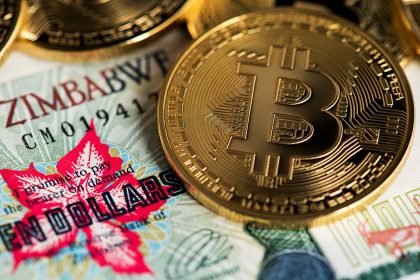LocalBitcoins Zimbabwe sees massive trading volumes as Bitcoin trades for a huge premium amidst the worsening economic conditions in Zimbabwe. BTC price hits $75,000.
Bitcoin has entered a major correction in the last five days and the price of the world’s largest cryptocurrency slips below $10,000. Since last Thursday, June 27, Bitcoin (BTC) price has lost nearly 30% from its 2019 peak of over $13,700. Thus, after a massive bull run throughout June 2019, bears are now dominating the bulls.
However, the situation is not the same everywhere! In the economically paralyzed nation of Zimbabwe, the demand for Bitcoin continues to escalate so much so that Bitcoin is trading at a massive 650% premium on the peer-to-peer trading platform LocalBitcoins Zimbabwe.
Zimbabwe’s crashing economy and oppressive policies have pushed the local citizens to put their money in crypto, especially Bitcoin. Moreover, a full-ban on foreign currencies by the government has escalated crypto adoption to new highs. At such a time, Bitcoin is currently trading at a massive price of $75,000 in Zimbabwe. Currently, Bitcoin is trading just under $10,000 which means that Zimbabwe citizens are paying a massive 650% premium.
Bitcoin in Massive Demand with Zimbabwe’s Economic Paralysis
Last week, in a new policy change, the Zimbabwean government re-introduced its Zimbabwean dollar. More importantly, this decision came by stopping the cash flow for the US Dollar. This has resulted in further backlash from the local citizens against the government. Olaoluwa Samuel-Biyi, director of remittance service SureRemit, said:
“Cryptocurrency is the digital version of old Swiss Dinar: The unstoppable money circulating without the government’s consent. Watch Bitcoin usage and prices spike in Zimbabwe, where, like everywhere else, “the full faith of government” is just economic jargon.”
With Zimbabwe’s exacerbating economic conditions, it has officially declared it illegal to circulate cryptocurrencies. Besides, it has completely banned all the local exchanges operating in the country, last year. As a result, investors have moved to P2P platforms.
P2P Trading Volumes Rise
While the global regulators are showing their involvement to bring crypto regulations in the market, we’re still to reach any mutual consensus. On the other, the worsening global economic scenario is driving the crypto craze further. Specifically, the countries reeling under economic sanctions are seeing greater crypto adoption by their locals.
Zimbabwe is not a case in isolation. We have seen that over the last year, Latin American nations like Venezuela, Argentina, and Brazil contributing majorly towards cryptocurrency adoption. As these countries have introduced new policies to alleviate the crypto adoption, investors in higher numbers are shifting for peer-to-peer trading platforms.
Hence the P2P platforms like LocalBitcoins are witnessing record volumes. However, last month, LocalBitcoins has recently removed the option to exchange crypto for cash. We could possibly see investors moving to decentralized exchanges (DEXs) going ahead. The demand for DEX is likely to increase looking at the regulatory uncertainty.
next